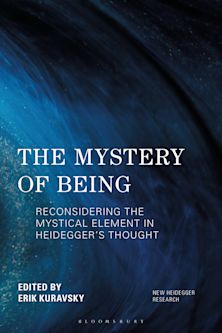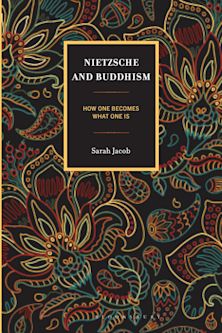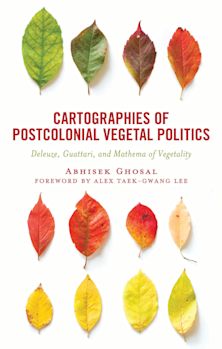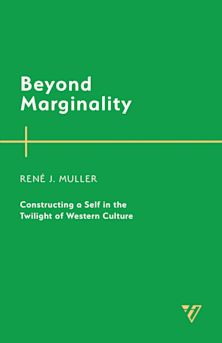From Vulnerability to Promise
Perspectives on Ricœur from Women Philosophers
From Vulnerability to Promise
Perspectives on Ricœur from Women Philosophers
This product is usually dispatched within 1 week
- Delivery and returns info
-
Free CA delivery on orders $40 or over
Description
From the outset, Paul Ricœur’s work gives centrality to man's bodily and sensitive nature—his primordial affectivity and fragility—as sources of free action. From Vulnerability to Promise: Perspectives on Ricœur from Women Philosophers explores this dimension and its ethical, political, and conceptual implications, focusing on the embodied dimension of existence, its vulnerability, and its possibilities of attestation and recognition. Edited by Sophie-Jan Arrien and Beatriz Contreras, this book examines the relationships—passivity and activity, mind and body, singularity and sociality, finitude and transcendence—that lie at the heart of Ricœur’s philosophical anthropology, revealing its ontological richness and ethical significance. Within this dimension, the ten contributors approach personal human identity in Ricœur’s work from multiple perspectives: the narrative dimension of understanding; birth and privacy; freedom and recognition; love and consent; justice and respect in the face of abuse; the vulnerability of our natural environment; our inescapable finitude. These viewpoints are informed by both their vision as women philosophers, empowering their embodied condition in a reflexive way, and the urgency of reflecting on the human condition in order to find continuity between its passionate, affective, and finite forces.
Table of Contents
Part I: Affectivity and Embodiment
Chapter 1: The Space of Affectivity in the Architecture of the Capable Self, by Beatriz Contreras Tasso
Chapter 2: Recognition and Consent: Images of Love in Paul Ricœur, by Francesca d’Alessandris
Chapter 3: The Birth and Symbolism of Passivity: Thinking with Paul Ricœur, by Carla Canullo (translated by Marco Dozzi)
Chapter 4: Body, Freedom and Recognition in the Beginnings of Paul Ricœur Philosophy, by Alejandra Bertucci and María Luján Ferrari
Part II: Identity and Narrative
Chapter 5: Are There Authentic Self-Narratives? A Discussion with Paul Ricœur and Judith Butler, by Chiara Pavan
Chapter 6: Mirrors of Identity, by Monica Gorza
Chapter 7: No more Storyteller? Narrative Theories of Paul Ricœur and Walter Benjamin in Dispute, by Jeanne Marie Gagnebin (translated by Samuel Lelievre)
Part III: Opening perspectives
Chapter 8: The Natural World as a Vulnerable Household: Paul Ricœur and Erazim Kohák in Dialogue, by Maria Cristina Clorinda Vendra
Chapter 9: Just Distance in Interaction. Asymmetries and Abuses, by Gaëlle Fiasse
Chapter 10: Thinking Finitude as a Finite Thinker. On the Philosophical Practice of Paul Ricœur, by Sophie-Jan Arrien
Product details
| Published | Feb 12 2025 |
|---|---|
| Format | Hardback |
| Edition | 1st |
| Extent | 248 |
| ISBN | 9781666933598 |
| Imprint | Lexington Books |
| Dimensions | 229 x 152 mm |
| Series | Studies in the Thought of Paul Ricoeur |
| Publisher | Bloomsbury Publishing |
Reviews

ONLINE RESOURCES
Bloomsbury Collections
This book is available on Bloomsbury Collections where your library has access.


































